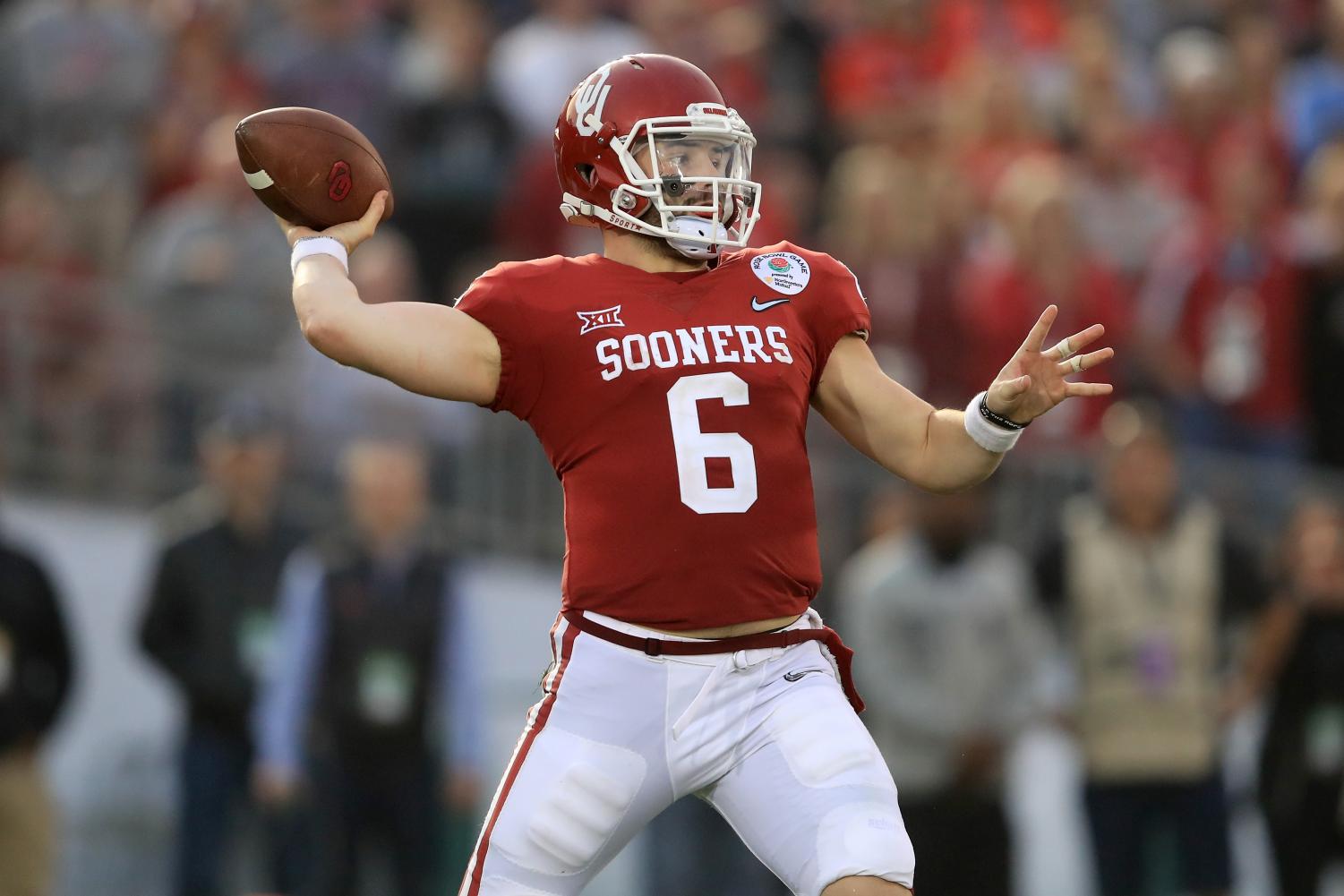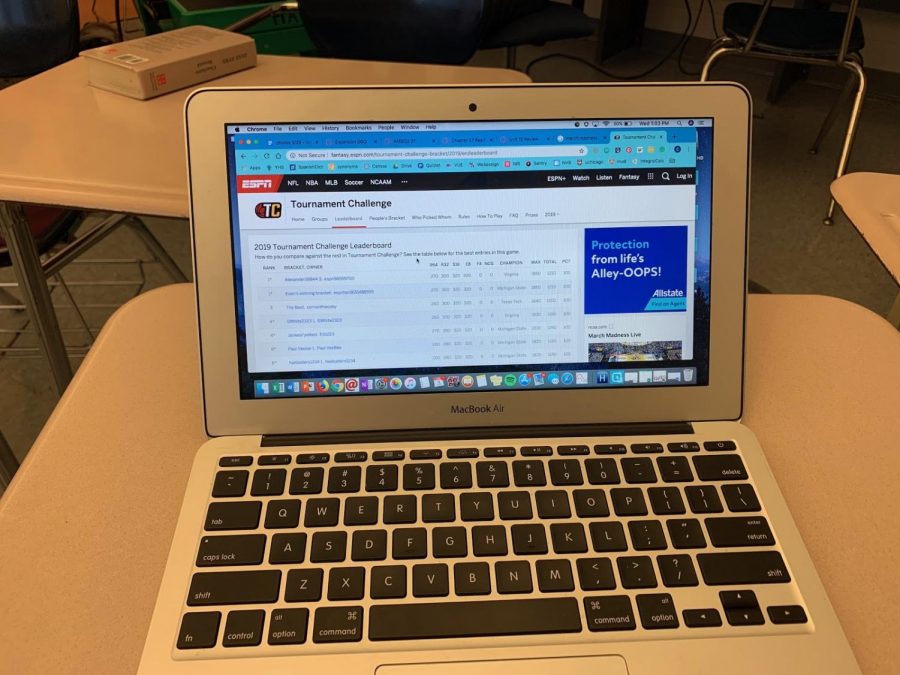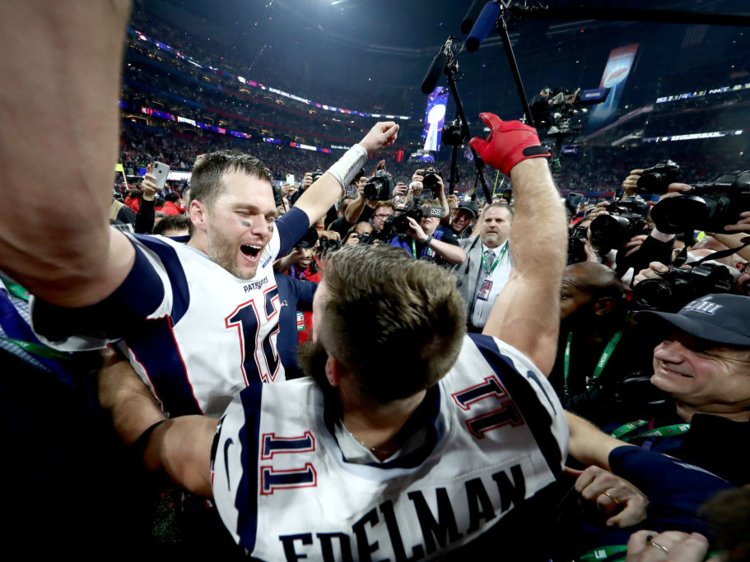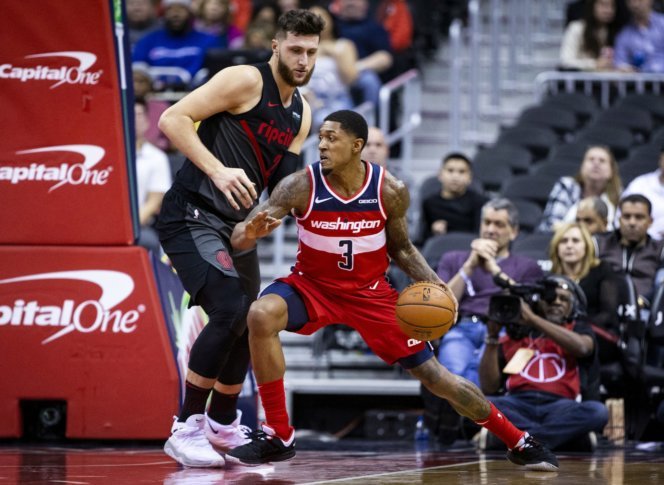When the draft was read for the number one pick, Browns fans across the country either let out a sigh of relief or a cry of anger when they learned that their team had taken the Heisman-winning quarterback (QB) from Oklahoma, Baker Mayfield. Mayfield finished his senior campaign first in the Heisman voting, racking up over 4,000 passing yards and 46 touchdowns. Pure numbers make Mayfield sound great, but besides the stats, Mayfield has glaring issues. Oklahoma runs a style of offense that is classified as a system, and system quarterbacks have a tradition of not transitioning well to the NFL. On top of offensive problems, Mayfield’s antics off the field have raised eyebrows from General Managers (GM) and coaches alike, raising the question whether he can behave and perform in the NFL. With all these issues and possible negatives, many fans were left wondering… why did the Browns pick him first?
Over the past five years the Browns have had a virtual revolving door of starting QBs. Names of the likes of Josh McCown and Deshone Kizer have stepped up and took the starting job, but with so many starters, the Browns have only produced one win in the past two seasons. Johnny Manziel, a QB who had won Heisman honors and had nearly impeccable stats had also been drafted by the Browns in the first round in 2014. His college stats boasted touchdown after touchdown and great completion percentages; however, his off the field antics got him benched and thrown out of the NFL, something that is very similar to Mayfield.
The 2018 Draft was dubbed by analysts and chairmen as the year of the quarterback. Names like Josh Allen and Lamar Jackson entered their names into the draft pool, and to say that the Browns had a wide variety of players to choose from with the number one pick was an understatement. On top of having the first overall pick, the Browns also possessed the fourth overall pick, so picking a QB first and possibly passing on the great talent of the explosive running back Saquon Barkley was also questioned. However, numerous reports had come in saying the Browns supposedly set on a QB since the month of January, and the consensus idea of who that was, was USC QB Sam Darnold. Darnold was a redshirt sophomore QB whose leadership and pro-ready offensive skills were set to be immaculate. When asked, people said they saw Darnold playing at a high level years and years down the road.
Roughly three months before the draft, the Browns hired Eliot Wolf as an assistant General Manager. Wolf is known for his time as the director of football operations for the Green Bay Packers, but his family heritage is known in football royalty to NFL fans. Wolf’s father, Ron Wolf, is a Hall of Fame General Manager for the Packers. During his time as a GM, Wolf took a major risk trading future first round picks to the Atlanta Falcons for their second round drafted QB who did not play. That Falcons player Wolf traded for happened to be Brett Favre, a QB who finished his career holding every single major passing record. If there is anything the Wolf family is known for, it is taking risks. Ron took a risk with Favre, and with Elliot on board, he now took a risk with Mayfield.
Coaches and GM’s evaluate players in multiple ways, the first being skill level, and the next being personality and if the player will mix with the team. Oklahoma football alumni have raved in the past about how great of a leader Mayfield was and what a great locker room presence he was, which looks good to teams and coaches. Also, Mayfield took full advantage of the Browns hiring Wolf. He answered every question with the answer the Browns wanted to hear, and he made himself even more appealing to Wolf by saying he wanted to base his game off of Brett Favre, and if he could emulate any quarterback… it would be him. Without a shadow of a doubt Mayfield did this as a ploy of Wolf’s family history, making it even more appealing to Wolf to draft him first.
Whether he should have been the first overall pick or not, no one can deny Mayfield’s potential talent. Twice in his illustrious collegiate career he posted a seventy percent completion percentage and posted forty or more touchdowns in the final two years of his campaign. Winning the Heisman is a tall task for any athlete, and the fact that Mayfield has done it once and came close another time is not something anyone should undervalue. Regardless of what the Browns may have been thinking in that moment, the pick has been made, and for the time being Baker Mayfield is the future of their organization. Come September 9, Browns fans will be able to see Mayfield run onto the field wearing number 6 and possibly take his first NFL snaps.












































